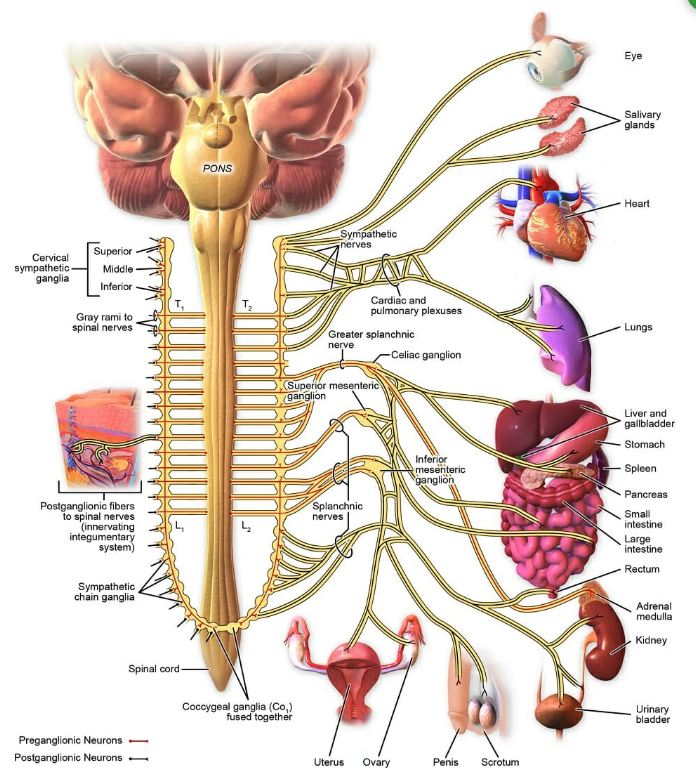The Sympathetic Nervous System

The Sympathetic Nervous System is a subdivision of the body's Autonomic Nervous System and it works alongside the Parasympathetic Nervous System to regulate your sweating and other autonomic processess of the human body. (These are all the automatic things that happen in your body without you having to think about them).
Your Sympathetic nervous system is responsible for its role in responding to dangerous or stressful situations. Most commonly known as your fight-flight response, your Sympathetic nervous system kicks into action to speed up your heart rate, deliver more blood to areas of your body that need more oxygen, plus a host of other responses to help you when you are faced with danger. This can be something like if you were about to be attacked by a tiger or even public speaking for some people.
The Parasympathetic nervous system works alongside the Sympathetic nervous system and is responsible for the body's rest and digestion response when the body is relaxed, resting or feeding. It basically undoes the work of the Sympathetic nervous system after a stressful situation when your fight-flight response has been triggered. When the Parasympathetic nervous system is activated, it slows our heart and breathing rates, lowers blood pressure, promotes digestion and returns our body to a state of calm and relaxation.
Your Sympathetic and Parasympathetic nervous systems have opposite roles. While your Sympathetic nervous system carries signals that put your body's systems on high alert, your Parasympathetic nervous system carries signals that relax those systems once the perceived danger has passed. The two systems work together to keep your body in balance. And as you can see in the above diagram, both of these systems are connected to nearly every other major organ in the body.
When a patient undergoes ETS surgery, part of the Sympathetic nervous system is disabled. This is achieved by severing (or clamping) the sympathetic nerves. When this happens, not only does this block the signal getting to your hands telling them when to sweat, the pathways connected to many other important body parts also connected to the Sympathetic nervous system are permanently impaired as well. Here's why...